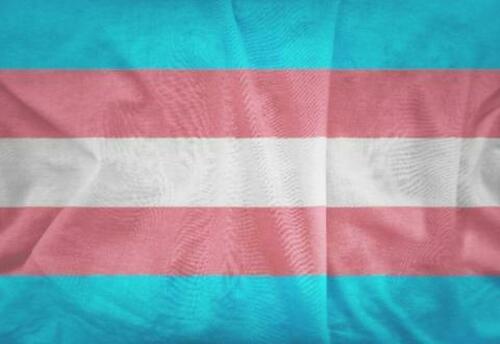
Authored by Wendy McElroy via The Mises Institute,
A “civil society” is a community of individuals who are linked together by common interests and activities. Common interests include being able to walk the streets safely (peace) and to exercise such rights as freedom of speech (individual freedom). These shared interests allow common activities to flourish, including commerce and the education of children.
Civil society is possible only because most people want to live securely, protect their loved ones, and prosper. This laissez-faire attitude used to be a defining characteristic of Americans, but an engineered and well-financed cultural war is destroying America’s renowned tolerance. If the common interests of society break down and peace and freedom are replaced by violence and privilege, then common activities like free-market commerce and education cannot function.
One movement captures the raw destruction of this culture war against civil society - a demand for “Trans rights!” blasts across America. But a sharp backlash against it has also developed, epitomized by the boycott of Bud Light beer over the company’s use of trans activist Dylan Mulvaney as a new “woman” ambassador for its brand.
The media characterizes this backlash as antitrans hatred by conservatives, Christians, and other troglodytes. But few people care about the sexual or gender orientation of their neighbors. Critics of the trans movement are rebelling against the forced redefinition of biology, the destruction of women’s sports by trans athletes, the hijacking of children’s education, the medical experiment of gender-transitioning children, and the intrusion of penises in women-only spaces like bathrooms, locker rooms, prisons, and shelters. Critics don’t want to oppress anyone; they want a return to civil society of peace and individual rights.
To understand why the “trans rights” movement has caused such damage, it is necessary to ask three questions.
-
What is a “transgendered” person?
-
What are “rights”?
-
What is produced by the actions the movement takes?
What is a transgendered person? Already we’re in trouble. Many prominent intellectuals today can’t even answer the simpler question, What is a woman? This article uses a common definition: “Transgender describes people whose gender identity does not match their assigned gender at birth.” It is one of many gender categories being advanced by social justice. There are as many as eighty-one distinct categories, all of which are said to be fluid or constructed over time.
Politically speaking, transgenderism and the other gender categories are a continuation of identity politics. This is a fairly standard definition of identity politics: “The politics of group-based movements claiming to represent the interests and identity of a particular group, rather than policy issues relating to all members of the community. The group identity may be based on ethnicity, class, religion, sex, sexuality, or other criteria” (emphasis added). It is an attempt to splinter society into groups and categories, all of which are at war with each other because their interests are said to conflict. What does this war look like?
Consider a controversial example: gender transitioning. This is when a person uses reassignment therapy, hormone replacement, and sex reassignment surgery to change their birth sex. Few argue against the gender transition of adults who pay for the process themselves. But the trans movement demands the gender transitioning of children, often at taxpayer expense; that is, a tomboy might become a “boy” through methods that include irreversible surgery.
There are at least two flash points here. One is the minimum age at which a person should transition. The World Professional Association for Transgender Health claims hormones can start at age fourteen and some surgeries at fifteen—in other words, at the height of a teenager’s sexual confusion. Recently, a licensed social worker at a children’s medical center in Austin, Texas, was reportedly recorded as saying the center provided gender modification to children as young as eight. On April 25, Senator Ted Cruz and Representative Chip Roy submitted a formal request to the center for information on how gender dysphoria is diagnosed, how federal dollars are spent in the process, and whether patients under eighteen underwent “experimental medical procedures.”
The group war here is between a child’s right against physical abuse and trans activists’ demands for children’s access to transition. The other flash point is that transitions are often performed without parental consent or despite parental objections. The rights war here—trans activists are usurping traditional parental rights, and parents are outraged.
The idea that the rights of one group conflict with those of another is perverse because it destroys the very basis of human rights. Human rights are universal because they are rooted in human nature. All human beings possess the same rights to the same degree. Rights are not based on secondary characteristics such as gender; they rest on a shared humanity. In other words, a trans person has the same rights to the same degree as every other person in society. No more, no less.
The “rights” demanded by trans activists are actually entitlements or group privileges. This is made clear by the claim of historical oppression, which is used to justify many demands. What is really being claimed is victimhood, upon which their entitlements are based. For trans activists to sustain their victimhood status, however, those who oppose them must be cast as oppressors and endless haters. Conveniently, this characterization removes the need to deal with any argument the “haters” present, such as the need for real human rights.
Again, this trans stance is a perversion. If the trans movement has been historically oppressed—and I do not argue against this—then the movement should value individual rights more than the average person. These freedoms are how an aggrieved individual rises to his or her feet. But trans activists do not want to be treated as equal individuals; they want to be a privileged group that imposes huge costs on the majority of society to their great benefit. Individual rights are an obstacle.
Gender transition is one area in which civil society is being replaced with civil warfare, but there are many others:
-
Trans “women” housed in women-only venues, like prisons and shelters, put biological women there at risk of sexual assault. Rapes are already happening.
-
Trans curricula in American public schools indoctrinate children at the expense of teaching basic life skills, like math and literacy.
-
A prominent doctor on Fox News warned, “First-year medical students [are] exposed to woke ‘sex and gender primer’ lesson.” This shifts the focus away from medical problems; it could also damage relationships with patients who do not share woke ideology or are not in a privileged group. The same is happening in law schools.
-
The trans agenda violates constitutionally guaranteed freedom of speech in myriad ways, from forcing schools to use pronouns like “xe” and “hir” to shouting down speakers or violently attacking them.
-
Draconian hate speech laws are destroying meaningful public discourse. A new bill passing through the Irish parliament, for example, outlaws communication or the possession of material that might incite hatred against “protected” classes, including gender. This is punishable by up to five years in prison.
-
The demand to include trans athletes in women’s sports is destroying the entire field.
-
Transitioned children who deeply regret transitioning are generally silenced or dismissed.
One way detransitioners are dismissed is through studies and statistics into which little trust can be invested. An article in the Associated Press claims, “In a review of 27 studies” of transgender surgeries, “1 percent on average expressed regret.” If this is true, it is good news. But is it true? The incessant ideology pumped through academia and the airwaves is yet another cost to civil society. Academics, journalists, and so-called experts have earned the public’s scorn. Studies and research have become just one more front in this war of all against all.
The media and authorities richly deserve this summary judgment from the public. Consider how they handle acts of violence. Every act of violence against a trans person seems to be widely reported and condemned, as it should be. But trans violence against biological women or other outsiders seems to be ignored or excused. Even the trans shooter in Nashville who killed three nine-year-old school children and three adults is protected by authorities who refuse to release the shooter’s manifesto. And media reports often expressed more concern about a backlash against trans people than about the dead children. SAVE Services, an agency that works to assure due process and fairness in schools, has an interesting page called “Stop the Wave of Transgender Violence” where many cases of trans violence are documented. In this environment, it is simply not possible to know what’s true about the levels of violence and against whom.
I would end by asking, can a more general violence—a savage civil unrest—be far behind? I believe it is already here.
Authored by Wendy McElroy via The Mises Institute,
A “civil society” is a community of individuals who are linked together by common interests and activities. Common interests include being able to walk the streets safely (peace) and to exercise such rights as freedom of speech (individual freedom). These shared interests allow common activities to flourish, including commerce and the education of children.
Civil society is possible only because most people want to live securely, protect their loved ones, and prosper. This laissez-faire attitude used to be a defining characteristic of Americans, but an engineered and well-financed cultural war is destroying America’s renowned tolerance. If the common interests of society break down and peace and freedom are replaced by violence and privilege, then common activities like free-market commerce and education cannot function.
One movement captures the raw destruction of this culture war against civil society – a demand for “Trans rights!” blasts across America. But a sharp backlash against it has also developed, epitomized by the boycott of Bud Light beer over the company’s use of trans activist Dylan Mulvaney as a new “woman” ambassador for its brand.
The media characterizes this backlash as antitrans hatred by conservatives, Christians, and other troglodytes. But few people care about the sexual or gender orientation of their neighbors. Critics of the trans movement are rebelling against the forced redefinition of biology, the destruction of women’s sports by trans athletes, the hijacking of children’s education, the medical experiment of gender-transitioning children, and the intrusion of penises in women-only spaces like bathrooms, locker rooms, prisons, and shelters. Critics don’t want to oppress anyone; they want a return to civil society of peace and individual rights.
To understand why the “trans rights” movement has caused such damage, it is necessary to ask three questions.
-
What is a “transgendered” person?
-
What are “rights”?
-
What is produced by the actions the movement takes?
What is a transgendered person? Already we’re in trouble. Many prominent intellectuals today can’t even answer the simpler question, What is a woman? This article uses a common definition: “Transgender describes people whose gender identity does not match their assigned gender at birth.” It is one of many gender categories being advanced by social justice. There are as many as eighty-one distinct categories, all of which are said to be fluid or constructed over time.
Politically speaking, transgenderism and the other gender categories are a continuation of identity politics. This is a fairly standard definition of identity politics: “The politics of group-based movements claiming to represent the interests and identity of a particular group, rather than policy issues relating to all members of the community. The group identity may be based on ethnicity, class, religion, sex, sexuality, or other criteria” (emphasis added). It is an attempt to splinter society into groups and categories, all of which are at war with each other because their interests are said to conflict. What does this war look like?
Consider a controversial example: gender transitioning. This is when a person uses reassignment therapy, hormone replacement, and sex reassignment surgery to change their birth sex. Few argue against the gender transition of adults who pay for the process themselves. But the trans movement demands the gender transitioning of children, often at taxpayer expense; that is, a tomboy might become a “boy” through methods that include irreversible surgery.
There are at least two flash points here. One is the minimum age at which a person should transition. The World Professional Association for Transgender Health claims hormones can start at age fourteen and some surgeries at fifteen—in other words, at the height of a teenager’s sexual confusion. Recently, a licensed social worker at a children’s medical center in Austin, Texas, was reportedly recorded as saying the center provided gender modification to children as young as eight. On April 25, Senator Ted Cruz and Representative Chip Roy submitted a formal request to the center for information on how gender dysphoria is diagnosed, how federal dollars are spent in the process, and whether patients under eighteen underwent “experimental medical procedures.”
The group war here is between a child’s right against physical abuse and trans activists’ demands for children’s access to transition. The other flash point is that transitions are often performed without parental consent or despite parental objections. The rights war here—trans activists are usurping traditional parental rights, and parents are outraged.
The idea that the rights of one group conflict with those of another is perverse because it destroys the very basis of human rights. Human rights are universal because they are rooted in human nature. All human beings possess the same rights to the same degree. Rights are not based on secondary characteristics such as gender; they rest on a shared humanity. In other words, a trans person has the same rights to the same degree as every other person in society. No more, no less.
The “rights” demanded by trans activists are actually entitlements or group privileges. This is made clear by the claim of historical oppression, which is used to justify many demands. What is really being claimed is victimhood, upon which their entitlements are based. For trans activists to sustain their victimhood status, however, those who oppose them must be cast as oppressors and endless haters. Conveniently, this characterization removes the need to deal with any argument the “haters” present, such as the need for real human rights.
Again, this trans stance is a perversion. If the trans movement has been historically oppressed—and I do not argue against this—then the movement should value individual rights more than the average person. These freedoms are how an aggrieved individual rises to his or her feet. But trans activists do not want to be treated as equal individuals; they want to be a privileged group that imposes huge costs on the majority of society to their great benefit. Individual rights are an obstacle.
Gender transition is one area in which civil society is being replaced with civil warfare, but there are many others:
-
Trans “women” housed in women-only venues, like prisons and shelters, put biological women there at risk of sexual assault. Rapes are already happening.
-
Trans curricula in American public schools indoctrinate children at the expense of teaching basic life skills, like math and literacy.
-
A prominent doctor on Fox News warned, “First-year medical students [are] exposed to woke ‘sex and gender primer’ lesson.” This shifts the focus away from medical problems; it could also damage relationships with patients who do not share woke ideology or are not in a privileged group. The same is happening in law schools.
-
The trans agenda violates constitutionally guaranteed freedom of speech in myriad ways, from forcing schools to use pronouns like “xe” and “hir” to shouting down speakers or violently attacking them.
-
Draconian hate speech laws are destroying meaningful public discourse. A new bill passing through the Irish parliament, for example, outlaws communication or the possession of material that might incite hatred against “protected” classes, including gender. This is punishable by up to five years in prison.
-
The demand to include trans athletes in women’s sports is destroying the entire field.
-
Transitioned children who deeply regret transitioning are generally silenced or dismissed.
One way detransitioners are dismissed is through studies and statistics into which little trust can be invested. An article in the Associated Press claims, “In a review of 27 studies” of transgender surgeries, “1 percent on average expressed regret.” If this is true, it is good news. But is it true? The incessant ideology pumped through academia and the airwaves is yet another cost to civil society. Academics, journalists, and so-called experts have earned the public’s scorn. Studies and research have become just one more front in this war of all against all.
The media and authorities richly deserve this summary judgment from the public. Consider how they handle acts of violence. Every act of violence against a trans person seems to be widely reported and condemned, as it should be. But trans violence against biological women or other outsiders seems to be ignored or excused. Even the trans shooter in Nashville who killed three nine-year-old school children and three adults is protected by authorities who refuse to release the shooter’s manifesto. And media reports often expressed more concern about a backlash against trans people than about the dead children. SAVE Services, an agency that works to assure due process and fairness in schools, has an interesting page called “Stop the Wave of Transgender Violence” where many cases of trans violence are documented. In this environment, it is simply not possible to know what’s true about the levels of violence and against whom.
I would end by asking, can a more general violence—a savage civil unrest—be far behind? I believe it is already here.
Loading…





